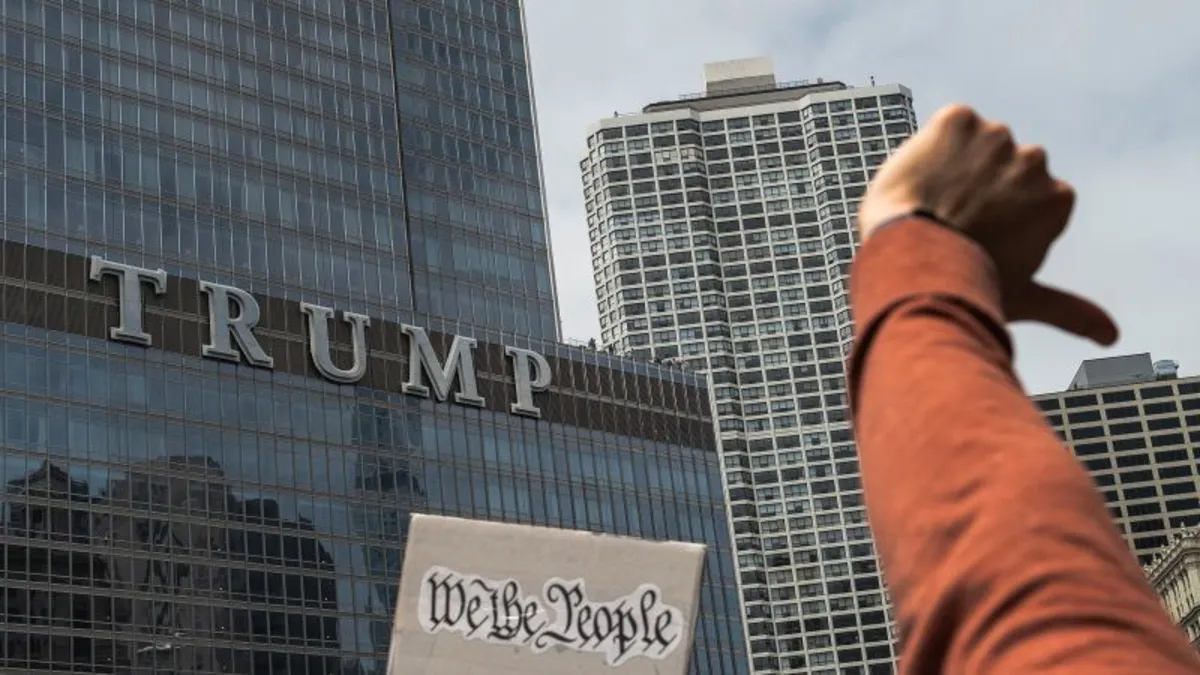
On Friday, President Donald Trump announced that Chicago would be the next city targeted by his administration for a federal crackdown on crime. During a statement made from the Oval Office, he expressed intentions to implement a longer and more intense campaign in the nation’s capital, stating, “We’ll straighten that one out, probably next, that will be our next one after this.” He further indicated that after addressing Chicago, assistance would also be extended to New York.
President Trump has previously credited his federal takeover of Washington, DC’s police force and the deployment of the National Guard with reducing crime in the city. He highlighted a week-long period without any murders as a “miracle,” despite multiple instances of similar occurrences throughout the year. Trump asserted his authority to maintain National Guard troops in the city “as long as I want,” suggesting that declaring a national emergency could extend their presence, a notion that may cause concern among local residents.
As of Thursday, more than 1,900 National Guard troops from various states, including West Virginia, South Carolina, Mississippi, Ohio, Louisiana, and Tennessee, have been mobilized in Washington, DC, according to Joint Task Force-DC.
In his remarks, Trump did not hold back when addressing DC Mayor Muriel Bowser, threatening to take further actions beyond merely seizing control of the police force if she failed to “get her act straight.” He remarked, “I’m tired of listening to these people say how safe it was before we got here. It was unsafe. It was horrible.” Trump asserted that Bowser needed to improve her governance or face the consequences of federal intervention, stating, “we’ll take it over with the federal government running like it’s supposed to be run.”
Despite polling indicating that a majority of city residents disapprove of the deployment of federal troops, Trump dismissed these findings as “fake news.” He claimed that residents from cities like Chicago were requesting a similar law enforcement crackdown, saying, “They’re wearing red hats, African American ladies, beautiful ladies, are saying, ‘Please, President Trump, come to Chicago.’” He criticized Chicago Mayor Brandon Johnson, labeling him “incompetent” and claiming the city has become more dangerous under his leadership. “When we’re ready, we’ll go in and we’ll straighten out Chicago just like we did DC,” he vowed.
While Trump’s comments suggest a federal crackdown is imminent in Chicago, the specifics of how such an intervention would unfold remain unclear. Unlike Washington, DC, which is not part of any state and has unique governance restrictions, Chicago’s situation is more complex. The federal government has the authority to federalize police forces in DC but would need to navigate different legal frameworks in Chicago.
Trump’s statements also suggested a conflation between keeping the National Guard in DC and the takeover of local police. He indicated that he could circumvent a provision under the District of Columbia’s Home Rule Act, allowing the federal government to seize control of the city’s police force for up to 30 days during emergencies. If he sought to extend this control, congressional approval would be necessary.
In discussions about upcoming initiatives, Trump mentioned that he has already spoken with House Speaker Mike Johnson and Senate Majority Leader John Thune regarding a planned request for $2 billion aimed at beautifying Washington, DC. He stated that securing this funding would be “very easy to get.” As reported by CNN’s Daniel Dale, violent crime in DC saw a decline in the years following a spike in 2023, although the Justice Department is currently investigating allegations that the DC Metropolitan Police Department manipulated crime data.
This developing story will continue to evolve as more details emerge about the federal administration’s approach to crime in urban areas like Chicago and Washington, DC.